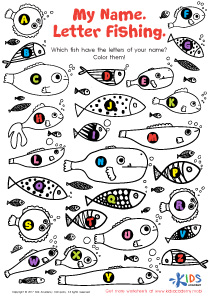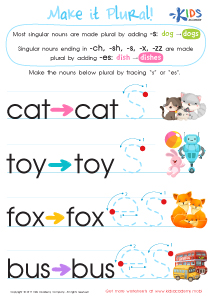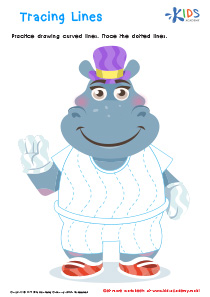Handwriting practice Easy Letter Recognition Worksheets for 4-Year-Olds
3 filtered results
-
From - To
Introduce your 4-year-old to the joys of handwriting with our Easy Letter Recognition Worksheets! These engaging and interactive worksheets are designed to help children develop essential fine motor skills while recognizing and writing letters of the alphabet. Each worksheet features fun activities that provide children with the opportunity to trace and practice each letter, reinforcing their understanding of letter shapes and sounds. With vibrant illustrations and age-appropriate designs, these worksheets encourage creativity and make learning enjoyable. Perfect for home or classroom use, our handwriting practice resources will support your child’s educational journey with confidence and enthusiasm. Start their writing adventure today!
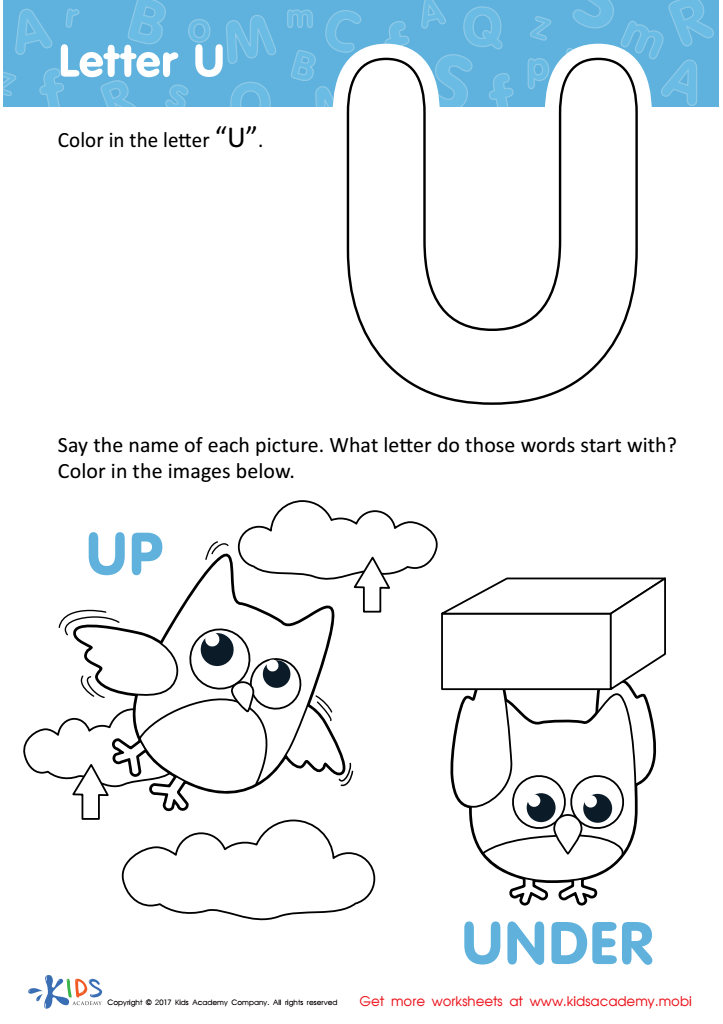

Letter U Coloring Sheet
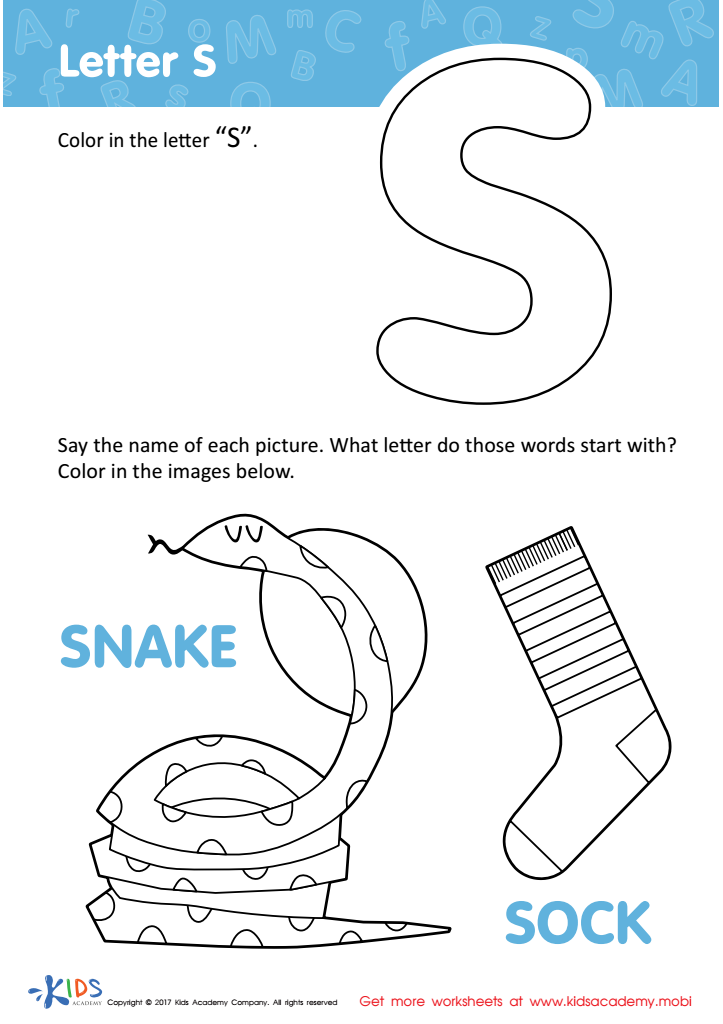

Letter S Coloring Sheet
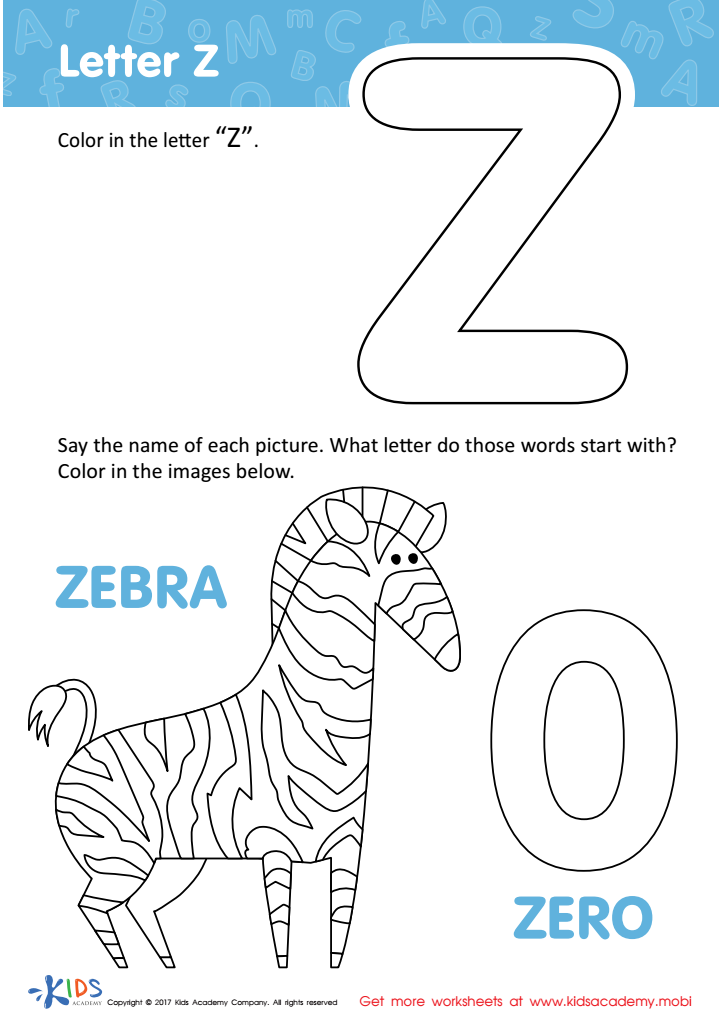

Letter Z Coloring Sheet
Handwriting practice and letter recognition are essential components of early childhood education, especially for 4-year-olds. At this stage, children's fine motor skills are still developing, and practicing handwriting helps enhance these skills, promoting coordination and control. Engaging in consistent letter writing not only makes the learning experience enjoyable but also cultivates a sense of achievement when they see their handwriting improve.
Moreover, letter recognition forms the foundation of literacy. Familiarity with letters empowers children to decode written language, aiding in their reading and writing abilities as they progress in school. Early exposure to letters through activities such as tracing, singing the alphabet, and using playful materials stimulates children’s curiosity about language, enhancing cognitive development.
Parents and teachers should prioritize these practices because they directly contribute to a child's confidence and academic readiness. Additionally, they reinforce a love for learning, setting a positive atmosphere in our fast-paced digital age. By incorporating fun, interactive methods to practice handwriting and letter recognition, caregivers create engaging learning moments that encourage children to explore and express themselves effectively. These efforts help lay a solid foundation for lifelong literacy skills, crucial for academic success and effective communication.

 Assign to My Students
Assign to My Students










